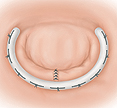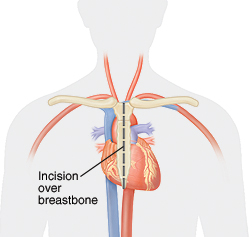Welcome to the medical library of Hartford Cardiology Group. The information shared below is provided to you as an educational and informational source only and is not intended to replace a medical examination or consultation, or medical advice given to you by a physician or medical professional.
If you have any questions or concerns regarding any condition or treatment, please contact Hartford Cardiology Group. To schedule an appointment please call (860-547-1489) or [email protected].
Heart Valve Surgery
Once a valve problem has been diagnosed and surgery scheduled, you’ll have some things to do. Some preparations will help make your surgery go smoothly. Some will help you get set up for your return home from the hospital. And others will help you feel more at ease. Your doctor will talk with you about the risks. Write down all your questions in advance so you don’t forget to ask them.
The Week Before Surgery
Steps you take before your surgery can help make both the surgery and recovery go smoothly. Follow your doctor’s instructions.
- Ask your doctor about scheduling any dental work you might need. Dental work could let bacteria into your bloodstream, which can cause infection on a new valve.
- Give your doctor a list of every medication you take, including supplements and over-the-counter products. Your doctor may have you stop taking some of them or start taking others before surgery.
- If you smoke, quit right away. You will do better during and after surgery.
- Arrange for an adult family member or friend to drive you home from the hospital. Have a helper available for your first week or two at home.
- Prepare and freeze food or arrange to have food brought in while you recover.
- Make adjustments around your home to simplify movements, such as reducing the need to climb stairs.
The Day Before Surgery
- You may be asked to wash with special soap the night before surgery. The morning of surgery, don’t use deodorant, lotion, or perfume.
- Don’t eat or drink anything after midnight, the night before surgery.
During Your Surgery
- Your surgeon will first gain access to your heart. To get to the heart, the surgeon usually makes an incision down the center of the chest. The breastbone (sternum) is then separated. (If your surgeon plans to reach your heart by a different means, he or she will discuss it with you.)
- A heart-lung machine will oxygenate your blood so your heart and lungs can be still during the surgery.
- The surgeon will either repair or replace the problem valve. If you have another heart problem, a second procedure may be done at the same time to take care of it, too.
- After surgery is done, the breastbone is rejoined with wires. The incision is then closed. In many cases, the breastbone heals in 6-8 weeks.
Three Ways to Treat Problem Valves
Different problems call for different treatments. Your doctor will talk with you in advance about the treatment that is best for you. In some cases, though, the plan may need to change once surgery has begun. The three basic ways to treat valve problems during surgery are:
- Repair of the valve: Whenever they can, surgeons prefer to repair a valve rather than replace it. The most common kind of repair involves sewing a ring around the entrance to a valve to improve its size or shape. Another involves cutting tissue to let leaflets open or close better. When repair isn’t possible, the valve will be replaced.
- Replacement with a mechanical valve: Mechanical valves are made of metal or hard carbon. There are many designs. Valves can last for decades. But blood tends to stick to them, forming clots. So if you receive a mechanical valve, you have to take Coumadin, an anticoagulant medication, for life to prevent blood clots.
- Replacement with a tissue valve: A tissue valve usually comes from a pig or a cow. Blood does not clot as easily on tissue valves. So patients getting tissue valves may need Coumadin for only a short time. Aspirin is sometimes used instead. Tissue valves may wear out faster than mechanical valves. So they may have to be replaced sooner.

A ring for one kind of repair

A mechanical valve

A tissue valve
Recovering After Surgery: In the Hospital
After surgery, you’ll spend at least a day in the intensive care unit (ICU). Highly trained nurses will monitor you closely. When you’re ready, you will be moved to a general care room. You’ll stay there for 5-6 days. While there, you’ll recover further and prepare to go home.
Recovering After Surgery: At Home
You’ve just come through one of the major events of your life. So give yourself time to get better little by little. Expect good days and bad days. At first, you may tire easily. But being active will help you recover. Find the right balance between rest and activity. And follow all instructions you’re given.
Risks and Complications of Heart Valve Surgery
Most valve surgeries have an excellent outcome. But any major surgery carries risk. Valve surgery risks include:
- Bleeding; need for a transfusion
- Infection
- Blood clot
- Heart rhythm problems, stroke, heart attack, or death
- Problems in the lungs or kidneys
- Failure of the new or repaired valve
- Damage to the heart
During Your Recovery, Call Your Doctor If You:
- Are short of breath while resting, or after only a little exertion.
- Notice your heart beating fast or slow or skipping beats (palpitations).
- Gain more than 2 pounds in 1 day(s) or 5 pounds in 7 days, or your legs swell (retaining fluids).
- Feel dizzy or lightheaded.
- Have fever of 100°F or higher.
- Notice changes in your incision, such as swelling, oozing, or getting red or tender. (Call your surgeon.)
- Have pain in your chest or shoulder that gets worse instead of better.
- Have clicking or grinding in your breastbone.

